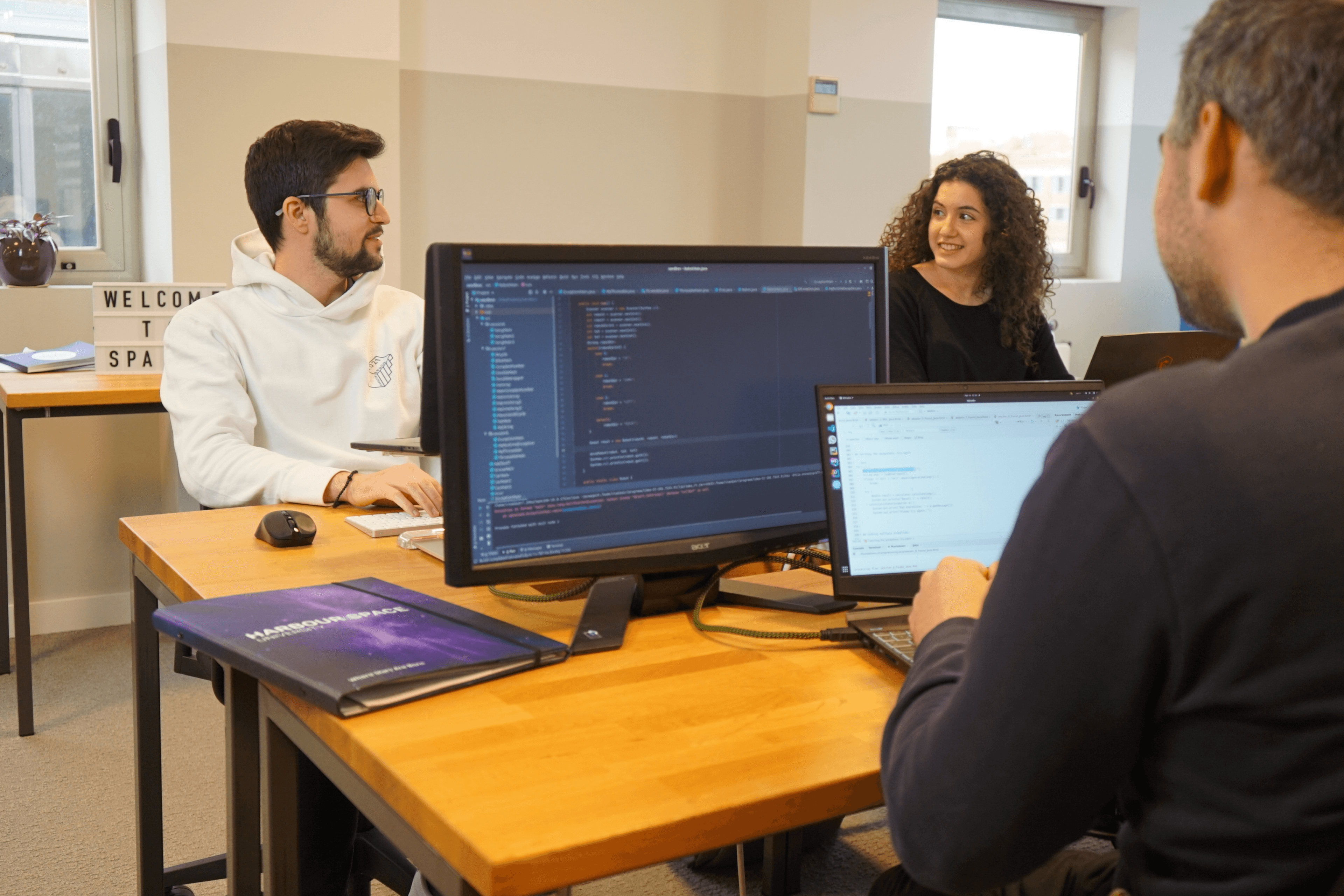Top 4 Reasons to Study Cyber Security at Harbour.Space
Hackers can steal your data, money, and identity. Individuals and organizations are more vulnerable than ever and there is a shortage of cybersecurity experts out there. This is the perfect time to study cybersecurity and protect the world from its multiple threats.


Writer at Harbour.Space University
Hackers can steal your data, money, and identity. Individuals and organizations are more vulnerable than ever and there is a shortage of cybersecurity experts out there. This is the perfect time to study cybersecurity and protect the world from its multiple threats.
These days, we use devices and input our data in them all the time. However, it seems that we are not aware that when a device is connected to the Internet, it can be hacked. People’s information is stored in databases all over the world, and all those databases are vulnerable to cybercrimes. Furthermore, as each day goes by, hackers grow more hi-tech and malicious. Therefore, nowadays, the importance of having someone in charge of our organization’s cybersecurity is crucial. Here are the top reasons why you should come to Harbour.Space and study Cyber Security.

Cyber Security Is on the Rise
According to the cybersecurity ventures “2022 official Cybercrime Report”, the cost of cybercrime is predicted to hit $8 trillion dollars in 2023 and will grow to $10.5 trillion by 2025. The “Identity Fraud Study: The Virtual Battleground” states that just in 2021 identity fraud affected 42 million US adults costing a total of $52 billion dollars. What’s amazing is that this number represents a 79% increase over 2020. Other numbers also showcase this upward trend:
- Credit card fraud rose 69%.
- Identity fraud scams claimed over $1,000 dollars per victim.
- 1 in 20 Americans were victims of fraud in 2021.
Moreover, according to Kaspersky lab, cryptojacking, a cybercrime in which another party’s computer hijacks yours, grew by 230% in 2022.
As Dasha Diaz, Harbour.Space’s Cyber Security programme co-director, states, cybercrime “is a huge problem that is becoming more complicated and sophisticated, because everything is connected to the network, so any kind of data can be stolen and it must be protected. This is a young industry that is expanding, we are understanding that everything should be protected, it is becoming bigger and more mature”.
So Many Different Types of Threats
Today, it is not only malware that cybersecurity experts have to combat. They also need to fight against ransomware, phishing, and Distributed Denial of Service (DDoS) attacks. Of course, the most common ones are malwares and ransomwares, but the other two are on the rise.
According to Kaspersky Security Network, in Q3 of 2022 alone there were more than 438,035 malicious mobile installation packages. And ransomwares cost companies a median of $18,000 dollars and 47% of all US businesses have suffered a cyberattack according to “Hiscox Cyber Readiness Report 2022”.

Phishing, when an attacker tries to trick a person into clicking a link by pretending he/she is a reputable entity either by sending an email or a message, increased by 61% in 2022, and it has become, by far, the most common attack performed by cybercriminals.
Finally, DDoS attacks grew by 57% with a total of 6 million cyberattacks globally. Here, cybercriminals make an only service, network resource or host machine unavailable. It is usually used by hacktivist groups and many of them claim that they will only stop the attack if they are paid a ransom.
Cybersecurity Jobs and Skills Shortage
Did you know that, according to Accenture, 43% of attacks are aimed at small and medium businesses and that only 14% are prepared to defend themselves? It is estimated that this year more than 33 billion records will be stolen worldwide, an increase of 175% from 2018.
Despite all of these data that showcases how crucial the defense against cyberattacks is today, the cybersecurity industry has an employee shortage making it a high salary field with an average salary of $130,000 dollars in the US and of €93,500 euros in Europe.

A Programme Like No Other
So, we find ourselves in an emergent industry with increasing threats that needs more experts. Why study cybersecurity at Harbour.Space? Because, here, you learn from experts that are actually working in the field, who, as Dasha says, “face the threats in their daily jobs and are up-to-date on what is happening right now”. Also, it has a very practical approach, students learn through workshops and projects with their teachers and trainers.
In Harbour.Space’s Cyber Security programme, students will learn both technical and non-technical paths to fight cybercriminals and choose their own career trajectory after graduating. In the technical side they will learn malware analysis, how to be a security researcher, and how to become an ethical hacker, a person that creates possible attacks in order to improve the security of the organization. In the non-technical side, they will learn how to be a cybersecurity consultant, a person that provides cybersecurity knowledge to companies and offers them software for them to use. They can also learn to be cybersecurity lawyers, project managers, or public relation experts.

Students will learn soft skills like crisis management, team building, and negotiation, and hard skills like malware analysis, reverse engineering, digital forensics, and incident response. All of this knowledge will teach the students what to do when an incident happens, how to look for threats, how to prevent them and how to protect the organization.
Also, at Harbour.Space you will find an array of nationalities, because it is an international programme open to students from around the world. Furthermore, by enrolling in Harbour.Space you can study in two amazing cities, Barcelona and Bangkok, and get two diplomas, an officially accredited diploma from UTCC, alongside Harbour.Space’s diploma.
Thanks for reading
If you’re interested in further growth, take a look at our website to learn what your future could look like at Harbour.Space. Lastly, get in touch with us at hello@harbour.space to let us know your thoughts!
